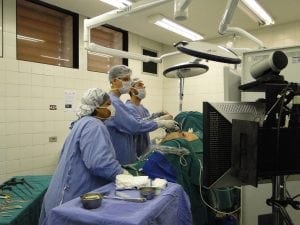Arcus Biosciences and Gilead Sciences issued a press release announcing encouraging overall response rates and six-month progression-free survival rate for their combination treatment of domvanalimab plus zimberelimab and chemotherapy for upper gastrointestinal cancers.
The companies disclosed the results of the ongoing EDGE-Gastric Phase 2 trial, which involves advanced inoperable (unresectable) or metastatic gastric cancer. The chemotherapy regimen includes oxaliplatin, leucovorin, and fluorouracil.
Domvanalimab, an Fc-silent anti-TIGIT antibody, targets upper GI adenocarcinomas and is the only antibody at this stage. Domvanalimab is currently in Phase 3 trials, positioning it as an early entry-to-market drug.
Overall Response Rate (ORR)
ORR is defined as the proportion of patients showing either a partial or complete therapy response. The ORR for the domvanalimab combination was 80% for individuals with PD-L1 high tumors, 46% for those with PD-L1 low tumors, with an overall rate of 59%. Gilead noted two complete responses.
Six-Month Progression-Free Survival (PFS)
The rate for the six-month PFS metric for patients with PD-L1 high tumors was 93%, with a rate of 68% for those with PD-L1 low tumors, and an overall rate of 77%. PFS data was not presented but will be reported in the second half of 2024.
No Adverse Events
According to Gilead, there were no significant adverse events, and no fatalities resulted from trial events. Neutropenia (low white blood cells) and nausea were the most common side effects. Therefore, the safety profile was comparable to most anti-PD-1 and standard chemotherapy.
The Phase 2 EDGE-Gastric trial is ongoing.
Yelena Janjigian, Chief Physician of Gastrointestinal Oncology at Sloan Kettering, commented that the early data indicates that anti-TIGIT therapy with domvanalimab has the potential to enhance chemotherapy and anti-PD-1. The safety profile is similar to chemotherapy and anti-PD-1.
The data supports STAR-221, an ongoing Phase 3 study of the mentioned combination.





